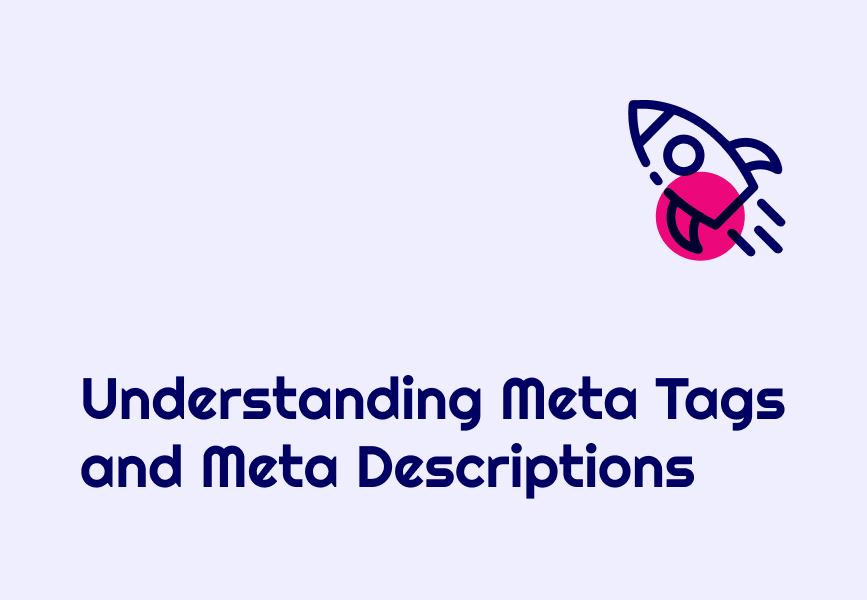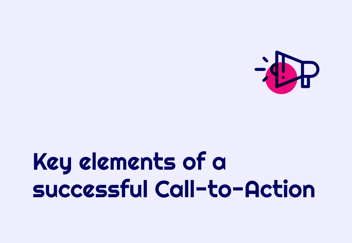Understanding Meta Tags and Meta Descriptions
Uncover the importance and impact of meta tags and meta descriptions on your website's SEO...

Uncover the importance and impact of meta tags and meta descriptions on your website's SEO performance.
The Basics of Meta Tags
Meta tags are snippets of text that describe the content of a web page. They are placed in the head section of the HTML code and provide information about the page to search engines and website visitors.
Meta tags include various elements such as the title tag, meta description tag, meta keywords tag, and others. These tags help search engines understand the relevance and context of the page's content, and they can influence how the page appears in search engine results.
The title tag is one of the most important meta tags. It specifies the title of the web page and appears as the clickable headline in search engine results. A well-crafted title tag can attract more clicks and improve the page's visibility.
The meta description tag is another crucial meta tag. It provides a brief summary of the page's content and appears below the title in search engine results. A compelling meta description can entice users to click on the page and increase the click-through rate.
Other meta tags, such as the meta keywords tag, used to be important for SEO, but search engines nowadays don't consider them as a ranking factor. However, they can still be useful for organizing and categorizing content.
Overall, meta tags play a crucial role in optimizing a web page for search engine visibility and improving the click-through rate from search engine results.
The Role of Meta Descriptions
Meta descriptions serve as a concise summary of a web page's content. They play a crucial role in attracting users and influencing their decision to click on a search result.
A well-crafted meta description should accurately describe the page's content while also being compelling and enticing. It should provide enough information to pique the interest of users and make them want to learn more by visiting the page.
Search engines often display the meta description below the title tag in search results, making it an important element for improving the click-through rate. By optimizing meta descriptions, website owners can increase the visibility of their pages and drive more organic traffic.
It's important to note that while meta descriptions don't directly impact a page's ranking in search results, they indirectly affect SEO performance by influencing the click-through rate. Therefore, crafting compelling meta descriptions is essential for optimizing a website's overall SEO strategy.
Optimizing Meta Tags for SEO
To optimize meta tags for SEO, it's important to consider a few key factors. First, the title tag should accurately reflect the content of the page and include relevant keywords. It should also be concise and compelling to attract clicks.
The meta description tag should provide a concise and compelling summary of the page's content. It should include relevant keywords and entice users to click on the search result.
When optimizing meta tags, it's crucial to avoid keyword stuffing or using irrelevant keywords. Search engines are smart and can recognize manipulative tactics. Instead, focus on providing valuable and relevant information to users.
It's also important to ensure that each page on your website has unique meta tags. Duplicate meta tags can confuse search engines and lead to lower rankings.
Regularly reviewing and updating meta tags can also be beneficial. As search trends and user behavior change, it's important to adapt your meta tags to stay relevant and attract the right audience.
By optimizing meta tags, you can improve your website's visibility in search engine results and attract more organic traffic.
Crafting Compelling Meta Descriptions
Crafting compelling meta descriptions is an art that can significantly impact the click-through rate of your web pages. Here are some tips to help you create effective meta descriptions:
- Keep it concise: Aim for a length of around 150-160 characters to ensure that the full description appears in search results.
- Use keywords strategically: Incorporate relevant keywords naturally into the meta description to attract users and improve search engine visibility.
- Highlight unique selling points: Showcase what makes your page stand out from the competition. Mention any special offers, unique features, or benefits users can expect.
- Create a call-to-action: Encourage users to take action by including a compelling call-to-action in the meta description. Examples include 'Learn more,' 'Discover now,' or 'Get started.'
- Be accurate and honest: Ensure that the meta description accurately reflects the content of the page to avoid misleading users.
By crafting compelling meta descriptions, you can increase the likelihood of users clicking on your search results and driving more organic traffic to your website.
Best Practices for Meta Tags and Meta Descriptions
To ensure the effectiveness of your meta tags and meta descriptions, consider the following best practices:
- Conduct keyword research: Identify relevant keywords that align with your content and incorporate them naturally into your meta tags and descriptions.
- Write unique meta tags and descriptions for each page: Avoid using duplicate meta tags and descriptions as they can confuse search engines and potentially harm your SEO.
- Keep it concise and compelling: Craft concise and compelling meta tags and descriptions that accurately represent your page's content and entice users to click.
- Monitor and update regularly: Regularly review and update your meta tags and descriptions to stay relevant and adapt to changing search trends and user behavior.
- Avoid keyword stuffing and manipulative tactics: Focus on providing valuable and relevant information to users rather than trying to manipulate search engine rankings.
- Test and analyze: Experiment with different meta tags and descriptions to see what resonates best with your audience. Analyze the performance of your meta tags and descriptions to make data-driven optimizations.
By following these best practices, you can maximize the impact of your meta tags and descriptions on your website's SEO performance.
Your ultimate guide to strategic outsourcing
Subscribe for expert tips, trends, and tailored solutions.



